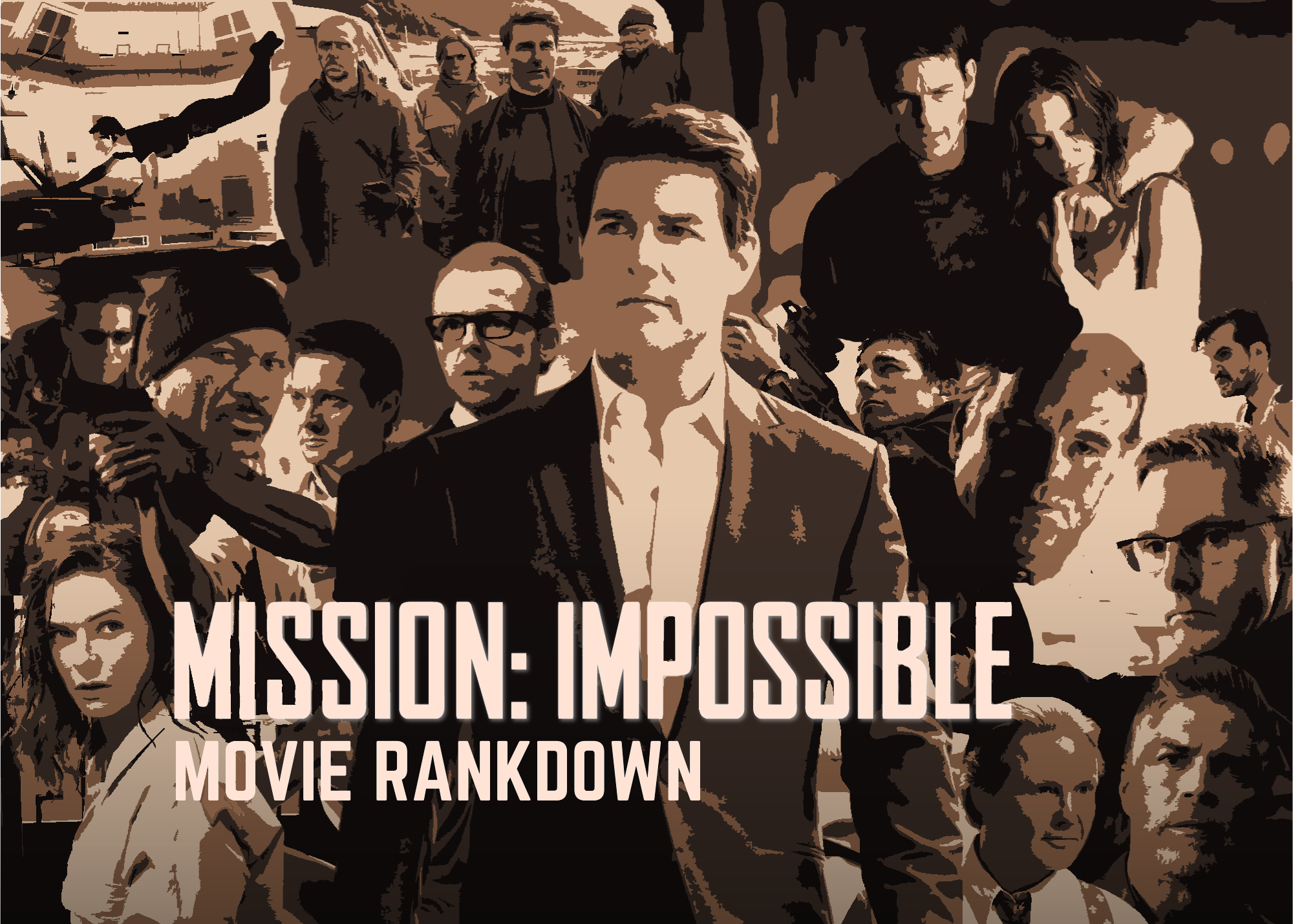"Gladiator II" Review: A Sequel of Pointless Proportions
We will have our vengeance for this awful movie, in this life or the next.
Recent ReleaseLast year, after decades (yes, it’s been that long since Gladiator came out, and you’re old) of speculation, Gladiator II, the sequel nobody asked for or wanted, was announced by Paramount. We’d heard tales of a potential follow-up to 2000’s iconic Best Picture winner, but they were always whispers in the wind. Upon the announcement, we bemoaned how unimaginative and unoriginal Hollywood continually proves itself to be, wishing that if it had to happen, we’d have gotten the time-traveling resurrected Maximus movie instead.
But as always, hope springs eternal, so the closer we got to the film’s release, the more we hoped Gladiator II would be worthwhile. Then, a few months ago, the studio released the official theatrical release poster, and a collective sentiment was called out from the Internet mountaintops:
What the fuck is that?
It’s no secret; if the creator doesn’t care, the product will suck. If a cake isn’t made with “love,” or you replace the sugar with salt, it will be inedible. If you build a house out of mud and popsicle sticks, it will not stand.
Over the years, many terrible film posters have tanked a movie before its release. Who can forget 2006’s The Shaggy Dog, where they photoshopped Tim Allen’s eyes onto a dog’s face looking like that annoying former coworker who’s way too happy to see you in the supermarket? Much like you don’t want to talk to Charlie Chatterbox, we didn’t want to see a Shaggy Dog, and the film predictably flopped with critics bombed at the box office.
Gen-Z digs up any old trend to return to cultural relevance; even they wouldn’t have conceived of the Gladiator II poster, the most blatant use of the 2000s DVD cover template ever: if you shopped in the 3-in-1 bin in the Walmart electronics section, this poster is for you.

It was disappointing but not surprising. Ridley Scott continues to direct, but he’s never been reliable, and revisiting a 24-year-old flick that left zero room for a sequel was, to put it mildly, questionable. But the second that atrocious poster came out, it was clear not even the marketing team, people who love either art, conning people, or the art of conning people, cared about whatever mess was going to get unleashed on us during the holiday season.
The story is simple: a warrior’s wife gets killed, after which he is captured by slavers and forced to become a gladiator with a black friend. After catching the eye of a gladiator trainer, he is taken to Rome to fight in the Colosseum, where he earns the love of the people while grappling with his complicated past, which includes Connie Nielsen. Meanwhile, a crippled Senate seeks to restore the republic by staging a coup to depose corrupt, mentally unstable leadership.
If that sounds familiar, it’s because it’s literally the exact same movie as Gladiator.
Okay, there are a few minor deviations, like our protagonist not dying at the end, the black friend getting killed off early like we’re in some late ‘90s horror movie, and the wife being a fellow soldier instead of… some lady, but the differences stop there. As such, Gladiator II is left without the one thing all unnecessary sequels need to guarantee some modicum of success: not getting judged by the original.
It’s one thing to make an unnecessary sequel by taking the spirit of the original and throwing it out the window while retaining the inherent action and upping the ante with modern technology, thus creating a substantially superior film; it’s another to go, “Hey, just do the same thing: no one will notice,” and expecting no one to notice.
However, it’s arguable that this was the intention since Gladiator II shamelessly (and constantly) references the original, whether through using modified versions of “Honor Him,” showing Maximus’ armor stored in a shrine beneath the Colosseum, stationing an army 5,000 strong at Ostia, and even giving our new hero his “I will have my vengeance” moment. Unfortunately, a vital distinction went unmade in the creative process: while the public has a collective reverence for Gladiator, there is a seismic difference between reverence and nostalgia.
That distinction sank Gladiator II’s ship before it even set sail. Even if it’d done its due diligence to distinguish itself and operate solely on its merit, it still had to perform the titanic undertaking of earning the public’s acclaim while being so closely related to something so revered. But as it constantly begs us to love it simply for existing, invoking the first film instead of insisting on its own identity, we realize our time would’ve been better spent rewatching the first film instead of bothering with the second one.
The opening battle? On its own, it’s the sort of cheap imitation we saw frequently in following years when Hollywood was desperate to recapture the general spirit of Gladiator, like with 300, Clash of the Titans or Prince of Persia. Compared to its predecessor, it’s an insult to the brutal cinematography and thrilling scoring of the battle against the Germanic tribes.
Denzel Washington? Individually, he delivers a beautifully scene-chewing performance that reminds us that, even at 70 and over four decades into his illustrious career, he commands the screen like few others. As the spiritual successor (but ultimate thematic opposite) of Oliver Reed, he feels like a desperate attempt to substitute a lack of compelling characters with one shouldering more than any can reasonably hold.
The arena sequences? Each has a mega-budget visual insistence, but they lack character, all surface, and no substance. As follow-ups to the epic duel between Maximus and Tigris of Gaul or the final fight between the former and Emperor Commodus, they feel lifeless, with no thematic momentum, character development, or narrative resolution.
As such, we have what has zero redeeming value. Paul Mescal, starring in the Maximus 2.0 role as Lucius, the young heir from the first film who we discover was shipped off after Maximus’ death to ensure his safety during the inevitable power struggle created by Commodus’ death, lacks the steely musculature that made Crowe’s Maximus such a riveting protagonist. Mescal is arguably the better overall talent, but his abilities are better suited for contemplative indie dramas, not blockbusters. In fairness, David Scarpa’s inept screenplay leaves the poor man reaching for anything to use, but physicality is needed even in quieter moments that Mescal lacks compared to his predecessor, and it’s noticeable to a damning degree.
In fairness, there are some improvements over the first film. The political subplot (though still largely undefined and unexplored) is woven in more consistently, leaving moments of palace intrigue more believable and less disruptive. Joaquin Phoenix, the most overrated actor of his generation, gets replaced with not one but two nutjobs. It could’ve settled for Joseph Quinn’s Geta and removed his twin brother and the pet monkey, but even he’s more up to the task than Phoenix’s atrocious accent and obnoxious overacting.
Sadly, the improvements end there and very abruptly. It isn’t just that Gladiator II was pointless; it’s its insistence on reminding us of that at every turn, asking us to bow in deference to its predecessor while insisting it’s a movie worth our adoration. It’s a contradictory aim that only the most skilled craftsman could convince us is not a contradiction at all, and Ridley Scott has long since exited the period of his career where he could pull that off. Thus, in the end, we have only a sad and sobering truth:
There was a dream that was Gladiator II. We somewhat, sort of, a teensy bit believed it once, and then this happened.

32
Director - Ridley Scott
Studio - Paramount
Runtime - 148 minutes
Release Date - November 22, 2024
Cast:
Paul Mescal - Lucius Verus Aurelius/”Hanno”
Denzel Washington - Macrinus
Connie Nielsen - Lucilla
Pedro Pascal - General Acacius
Joseph Quinn - Emperor Geta
Fred Hechinger - Emperor Caracalla
Derek Jacobi - Senator Gracchus
Matt Lucas - Master of Ceremonies
Editor - Sam Restivo, Claire Simpson
Screenplay - David Scarpa
Cinematography - John Mathieson
Score - Harry Gregson-Williams

%20(13%20x%206%20in)%20(13%20x%204%20in).png)





































.png)






.png)